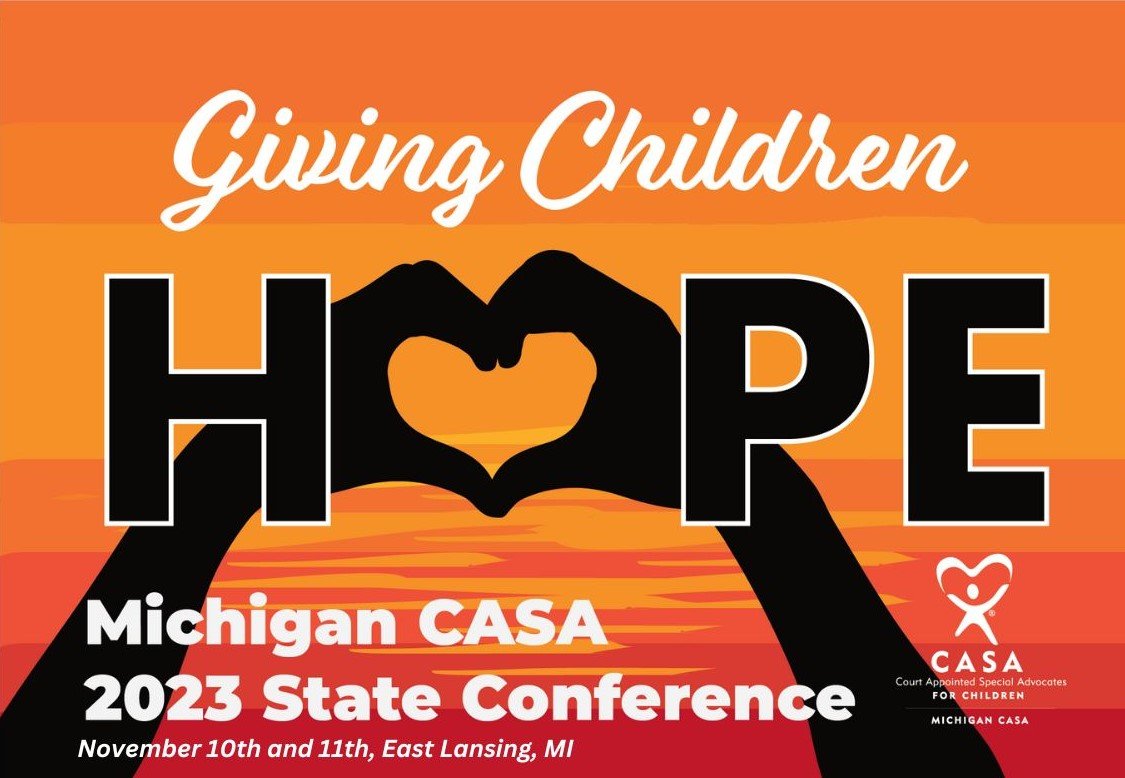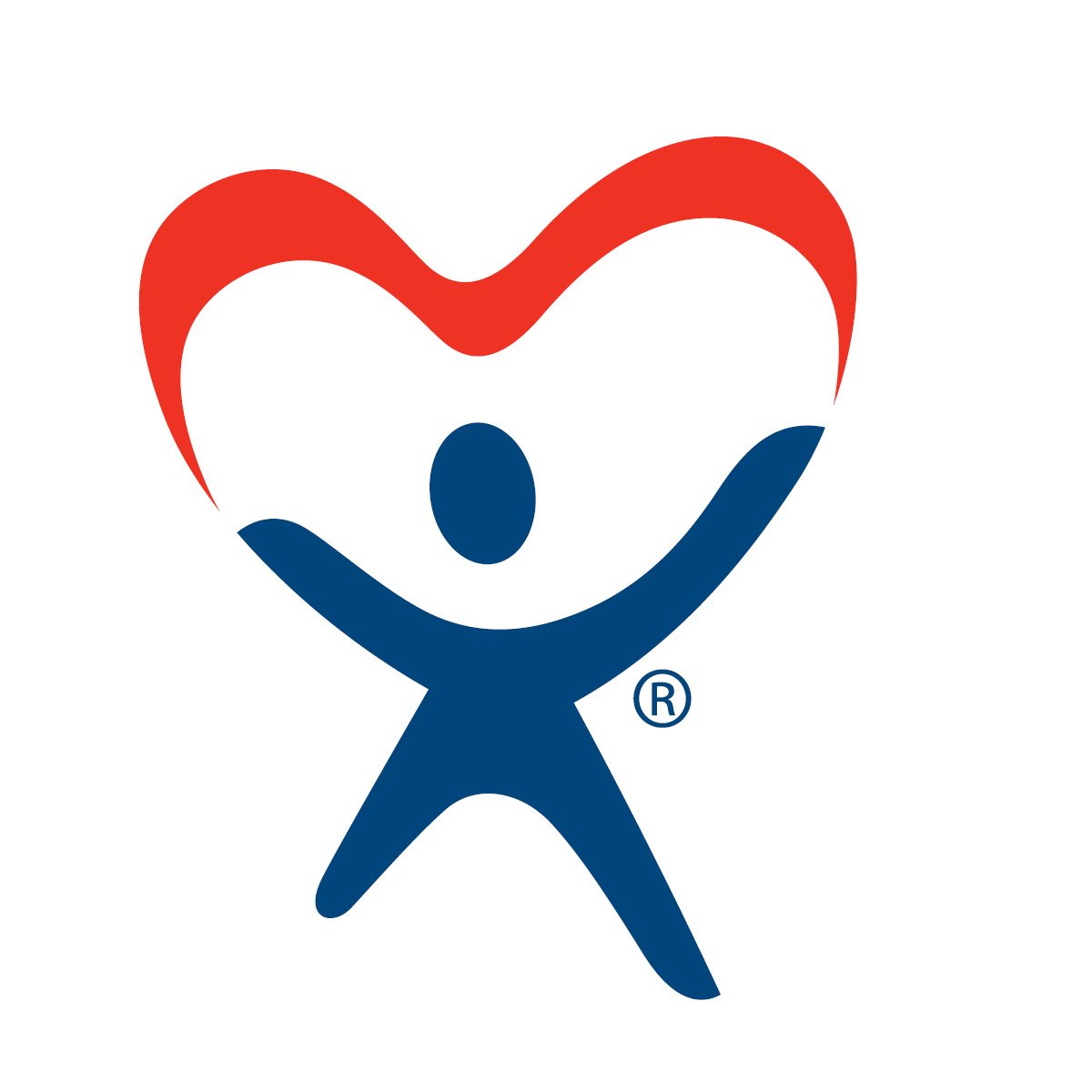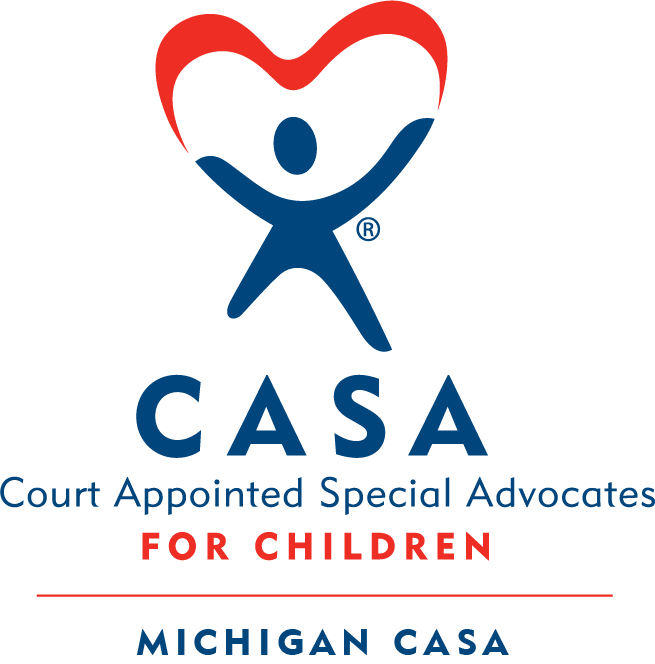
CASA Education Calender
Applying a Trauma Informed, Culturally Responsive Approach to Child Advocacy
In the child welfare world, it is not enough for caregivers and service providers to simply love and care for the safety and well being of a child without seeing the color of the child, understanding and validating the impact of race on the child and family's experience and being intentional about racial socialization in order to create a positive racial identity and mitigate barriers to permanency.
Through the use of lecture, discussion and reflection opportunities, participants will evaluate the necessity in acknowledging the role that race plays in the experience of systemic oppression, marginalization, internalized oppression and feelings of hopelessness and helplessness in relation to a child or family's involvement in the child welfare system. Strategies to increase safety, break down barriers and practice humility will be presented as well as how professionals can work with youth and family's as partners and use racial socialization as protective factors.
Presenter: Crystal Bennett, LMSW
Crystal Rozelle – Bennett, LMSW has been working with youth and families for nearly 20 years. She is committed to empowering, engaging, educating and advocating in order to implement trauma-informed strategies for individuals and communities. More . . .

LISTENING: AN UNSPOKEN ART
Listening is an art. Learn how to leverage your communication skills by employing active listening as a method to deeply engage with others in our CASA work. We unconsciously use our ears all hours of the day and night. But do we really hear everything? This session guides CASA staff and volunteers with insights surrounding this vital half of communication.
Presented by Emily Oosterhouse, Pine Rest EAC
Training is virtual on Microsoft Teams.
Register here before February 15, 2025
Training Roundtable
Join fellow CASA trainers as we come together to share, learn, and collaborate on CASA training best practices. This group will meet quarterly.
Pathways to Achievement: Supporting Foster Youth in Education
Join us for an engaging and solution-focused training designed to empower advocates and professionals working with foster youth in the school system. This session will delve into the critical role mental health plays in academic success, providing attendees with the tools and knowledge needed to support foster youth in their educational journey.
Program Highlights:
- Understanding Mental Health in Schools: Help identify and explore symptoms or behaviors that may be more unique to youth in foster care, and gain insights into why mental health matters in the educational setting. This includes exploring common diagnoses, trauma, and recognizing signs and symptoms of mental health challenges that may impact students in the classroom.
- Implementing Effective Supports: Discover how Individualized Education Programs (IEP) and 504 Plans can be leveraged to support foster youth, and explore various support strategies to enhance understanding and support of foster care students and the unique challenges they face.
- Interactive Problem-Solving: Participate in scenario-based activities designed to foster collaborative problem-solving, including strategies for dealing with pushback when implementing support measures. Emphasize the importance of creating a secure and stable environment, helping foster youth depend on something familiar in their educational experience.
- Debrief & Idea Sharing: Conclude with a group debrief, sharing ideas and strategies that can be implemented to support foster youth in achieving academic success.
Presenter: Margo Pierce, Parent Support Partner Statewide Coordinator, The Association for Children's Mental Health.
This training is an invaluable opportunity to enhance your understanding of the unique challenges faced by foster youth in education and to develop practical strategies to support their academic and emotional well-being.
Training Roundtable
Join fellow CASA trainers as we come together to share, learn, and collaborate on CASA training best practices. This group will meet quarterly.
Volunteer Pre-Service Training of Facilitators (Day 2)
This training is designed for those who have successfully completed the Volunteer Pre-Service training and will be facilitating/co-facilitating training for local CASA programs.
** Successful completion requires participation in the May 21 and May 22 sessions **
Volunteer Pre-Service Training of Facilitators (Day 1)
This training is designed for those who have successfully completed the Volunteer Pre-Service training and will be facilitating/co-facilitating training for local CASA programs.
** Successful completion requires participation in the May 21 and May 22 sessions **
Drug Myths, Trends and Opportunities to Intervene
Join us as we welcome Colleen Lane, MD and Dan Wicklund, DNPc, RN, CARN with Corewell Health to explore and discuss common and not so common substances in our community. Their presentation will delve into what factors are driving overdose deaths and how we can help prevent some of these accidental tragedies. We will discuss how treatment works, how it is not a one size fits all definitions, and we will dispel some myths about recovery.
Dr. Colleen Lane is a tireless advocate for her patients and her community. She completed dual residency training at Detroit Medical Center/Wayne State University in both internal medicine and pediatrics and is board certified in Addiction Medicine as well. Shortly following she began working at Whitman Walker Health in D.C. where she dedicated her practice to LGBTQIA+ affirming care, treating individuals living with HIV, and particularly focused on those suffering from substance use disorders. While serving as a medical site director she spearheaded the development of an integrated substance use disorder program in Whitman Walker’s primary care program. Now as the Medical Director of Addiction Medicine at Corewell Health, Dr. Lane has brought the lessons learned by the HIV community on best practices for harm reduction and low barrier access to her current work in Addiction Medicine. Modeled after HIV same-day antiretroviral start programs Dr. Lane founded a low barrier walk-in clinic at Corewell Health’s Addiction clinics for high-risk substance use disorder patients. In its first two years the walk-in program has successfully connected over 800 new patients to Addiction Specialty services the day they were ready to be seen. Dr. Lane is a true physician advocate and alongside her clinical work she is primary investigator on an international clinical trial, serves on her county’s opioid taskforce and overdose fatality review, volunteers as board secretary for The Grand Rapids Red Project (a large harm reduction program), and works at a national level as a member of the ASAM legislative advocacy committee.
Dan Wicklund is the Nurse Educator for Addiction Medicine for Corewell Health and works with system level opioid stewardship team to provide subject matter expertise and guide the clinical practice and policy development for controlled substances. Dan comes from a background of Intensive Care and HIV medicine and utilizes the lessons learned from these areas to improve access and equity to substance use disorder treatment. In his time at Corewell Health, Dan has worked to develop a nurse-led walk-in access to substance use treatment available at all Corewell Addiction Medicine offices and continues to set immediate access to care as the emerging standard of care for substance use. Beyond his clinical work, Dan serves on as a director for the American Society of Addiction Nursing to advocate for Nursing practice to address addiction within clinical practice and education spaces. Dan also serves as adjunct clinical faculty to educate the next generation of nurses to be competent and confident in substance use intervention. Dan continues to expand addiction nursing practice across the nation through speaking to the utilization of nurses to the top of their licensure in efforts to expand health access points for disadvantaged communities.
Training Roundtable "Understanding Neurodiversity: Facilitating Inclusive Trainings”
Join fellow CASA trainers as we come together to share, learn, and collaborate on CASA training best practices. This group will meet quarterly.
Fostering Futures Training of Facilitators (Day 2)
This training is designed for those who have successfully completed the Fostering Futures training and will be facilitating/co-facilitating training for local CASA programs.
** Successful completion requires attendance at both April 24 and April 25 sessions. **
Fostering Futures Training of Facilitators (Day 1)
This training is designed for those who have successfully completed the Fostering Futures training and will be facilitating/co-facilitating training for local CASA programs.
** Successful completion requires attendance at both April 24 and April 25 sessions. **
Volunteer Recruitment & Retention (Part 3)
For Michigan CASA Staff only *
This intensive 3-part series presented by Betsy McFarland, CVA, is designed to provide participants with practical tools and strategies to help CASA staff recruit and retain committed and caring volunteers.
January 16 Part 1: Understanding Modern Volunteerism and Changing Expectations
February 20 POSTPONED
March 19 Part 2: Innovative Strategies for Effective Volunteer Recruitment and Retention
April 23 Part 3: Implementing Effective Volunteer Recruitment and Retention Strategies
Homework will be assigned between sessions to support participants in building their own volunteer recruitment plans. Betsy will offer “office hours” between where participants can meet for additional guidance.
Betsy McFarland, CVA is a strategist and problem-solver who has forged a unique professional niche focused on developing leaders, staff and volunteers committed to tackling challenging societal issues.
Betsy is particularly passionate about maximizing the impact of volunteers by helping leaders align volunteer engagement efforts with their mission. She specializes in assessing volunteer involvement organization-wide and developing strategies, building infrastructure, and providing training to ensure efficient and effective achievement of organizational goals.
Betsy is a Certified Volunteer Administrator (CVA) and author of Volunteer Management for Animal Care Organizations. She published research on staff-volunteer relationships and worked with the University of North Carolina at Charlotte to develop a research-supported Volunteer Program Assessment that serves nonprofit volunteer programs across the U.S. and Canada. She co-directs the Initiative for Strategic Volunteer Engagement, a joint effort of funders and nonprofits to elevate and expand investments in volunteer engagement.
Re-Imagining Chapter 7: The Bigger Picture of LGBTQ+ Education and Advocacy for Foster Youth
Presented by Mary Finedore, the goal of this training is to explore and expand the depth and context of the case study presented in Chapter 7 on LGBTQ+ youth. Relevant statistics will be used as guiding points for the broader context of the importance of LGBTQ+ advocacy and the case study will be analyzed in great depth, focusing on the very subtle and not to subtle nuances of the case that often go unaddressed and thereby leave important opportunities for advocacy untapped. This training will be an interactive deep dive into how to teach this section with updated facts, context, prompting and engaging questions and room for any other concerns folks may have regarding LGBTQ+ advocacy.
Mary is a CASA and a rising third year medical student at MSU-CHM. She is dedicated to working with underserved/under-resourced populations and has a specific dedication to children and adolescents in the foster care/welfare system. Mary has worked as a health advocate and coach, an LGBTQ+ youth group facilitator and leader, an LGBTQ+ healthcare trainer for Planned Parenthood and the Illinois Department of Health, a student educator at MSU-CHM on LGBTQ+ healthcare topics, and is an LGBTQ+ trainer with CASA of Kent County, helping to train new CASA volunteers on ways to best advocate for LGBTQ+ youth in the foster system.
** For Michigan CASA Staff and Volunteers
Situational Awareness: Tips and Strategies to Improve Your Safety and Well-Being in the Field.
It is important for our safety and well-being that we pay attention and are aware of our surroundings while at home, at work, and in the community. Situational Awareness is being aware of your surroundings and any potential hazards or threats. The more prepared and aware of possible hazards or threats, the better we can protect ourselves. This talk will provide tips on what you can do before, during and after traveling to unfamiliar places and meeting with individuals for the first time.
James Fannon, of Special Investigations Group will present real-life scenarios (submitted by you) and how we can learn to increase our awareness and ability to act and ultimately improve our safety.
Jim is the owner, founder and CEO of Special Investigations Group & SIG Tactical. With a background of more than 30 years in the investigation and security fields, James began his career in the U.S. Army. After his military service, James worked as a law enforcement officer where he conducted numerous investigations ranging from civil infractions to homicides as a patrol officer, general case, auto theft, major case team and vice/undercover detective. After his law enforcement career, James began his investigative work in the civilian arena.
** For Michigan CASA Staff and Volunteers
Volunteer Recruitment & Retention (Part 2)
For Michigan CASA Staff only *
This intensive 3-part series presented by Betsy McFarland, CVA, is designed to provide participants with practical tools and strategies to help CASA staff recruit and retain committed and caring volunteers.
January 16 Part 1: Understanding Modern Volunteerism and Changing Expectations
February 20 POSTPONED
March 19 Part 2: Innovative Strategies for Effective Volunteer Recruitment and Retention
April 23 Part 3: Implementing Effective Volunteer Recruitment and Retention Strategies
Homework will be assigned between sessions to support participants in building their own volunteer recruitment plans. Betsy will offer “office hours” between where participants can meet for additional guidance.
Betsy McFarland, CVA is a strategist and problem-solver who has forged a unique professional niche focused on developing leaders, staff and volunteers committed to tackling challenging societal issues.
Betsy is particularly passionate about maximizing the impact of volunteers by helping leaders align volunteer engagement efforts with their mission. She specializes in assessing volunteer involvement organization-wide and developing strategies, building infrastructure, and providing training to ensure efficient and effective achievement of organizational goals.
Betsy is a Certified Volunteer Administrator (CVA) and author of Volunteer Management for Animal Care Organizations. She published research on staff-volunteer relationships and worked with the University of North Carolina at Charlotte to develop a research-supported Volunteer Program Assessment that serves nonprofit volunteer programs across the U.S. and Canada. She co-directs the Initiative for Strategic Volunteer Engagement, a joint effort of funders and nonprofits to elevate and expand investments in volunteer engagement.
Fostering Futures Training (Day 3)
CASA’s Fostering Futures program is designed to improve outcomes for older and emancipating youth (14-21 years of age) served by CASA/GAL volunteers.
The training will be held on February 27, 28 and 29 from 9am until 12pm via zoom.
By the end of this training, participants will be able to:
- Engage with older youth in an effective way
- Guide youth through the possible selves model
- Identify legislation that supports older youth
- Identify resources that can assist older youth
- Explain the benefit of youth attending hearings
** Participants must have completed the Pre-Service Training and agrees to attend the full three day training.
Fostering Futures Training (Day 2)
CASA’s Fostering Futures program is designed to improve outcomes for older and emancipating youth (14-21 years of age) served by CASA/GAL volunteers.
The training will be held on February 27, 28 and 29 from 9am until 12pm via zoom.
By the end of this training, participants will be able to:
- Engage with older youth in an effective way
- Guide youth through the possible selves model
- Identify legislation that supports older youth
- Identify resources that can assist older youth
- Explain the benefit of youth attending hearings
** Participants must have completed the Pre-Service Training and agrees to attend the full three day training.
Fostering Futures Training
CASA’s Fostering Futures program is designed to improve outcomes for older and emancipating youth (14-21 years of age) served by CASA/GAL volunteers.
The training will be held on February 27, 28 and 29 from 9am until 12pm via zoom.
By the end of this training, participants will be able to:
- Engage with older youth in an effective way
- Guide youth through the possible selves model
- Identify legislation that supports older youth
- Identify resources that can assist older youth
- Explain the benefit of youth attending hearings
** Participants must have completed the Pre-Service Training and agrees to attend the full three day training.
Volunteer Recruitment & Retention (Part 2)
For Michigan CASA Staff only *
This intensive 3-part series presented by Betsy McFarland, CVA, is designed to provide participants with practical tools and strategies to help CASA staff recruit and retain committed and caring volunteers.
January 16 Part 1: Understanding Modern Volunteerism and Changing Expectations
February 20 Part 2: Innovative Strategies for Effective Volunteer Recruitment and Retention
March 19 Part 3: Implementing Effective Volunteer Recruitment and Retention Strategies
Homework will be assigned between sessions to support participants in building their own volunteer recruitment plans. Betsy will offer “office hours” between where participants can meet for additional guidance.
Betsy McFarland, CVA is a strategist and problem-solver who has forged a unique professional niche focused on developing leaders, staff and volunteers committed to tackling challenging societal issues.
Betsy is particularly passionate about maximizing the impact of volunteers by helping leaders align volunteer engagement efforts with their mission. She specializes in assessing volunteer involvement organization-wide and developing strategies, building infrastructure, and providing training to ensure efficient and effective achievement of organizational goals.
Betsy is a Certified Volunteer Administrator (CVA) and author of Volunteer Management for Animal Care Organizations. She published research on staff-volunteer relationships and worked with the University of North Carolina at Charlotte to develop a research-supported Volunteer Program Assessment that serves nonprofit volunteer programs across the U.S. and Canada. She co-directs the Initiative for Strategic Volunteer Engagement, a joint effort of funders and nonprofits to elevate and expand investments in volunteer engagement.
Implicit Bias: How it Impacts Our Work with Children and Families
For CASA Staff only. Registration required.
Volunteer Recruitment & Retention
For Michigan CASA Staff only *
This intensive 3-part series presented by Betsy McFarland, CVA, is designed to provide participants with practical tools and strategies to help CASA staff recruit and retain committed and caring volunteers.
January 16 Part 1: Understanding Modern Volunteerism and Changing Expectations
February 20 Part 2: Innovative Strategies for Effective Volunteer Recruitment and Retention
March 19 Part 3: Implementing Effective Volunteer Recruitment and Retention Strategies
Homework will be assigned between sessions to support participants in building their own volunteer recruitment plans. Betsy will offer “office hours” between where participants can meet for additional guidance.
Betsy McFarland, CVA is a strategist and problem-solver who has forged a unique professional niche focused on developing leaders, staff and volunteers committed to tackling challenging societal issues.
Betsy is particularly passionate about maximizing the impact of volunteers by helping leaders align volunteer engagement efforts with their mission. She specializes in assessing volunteer involvement organization-wide and developing strategies, building infrastructure, and providing training to ensure efficient and effective achievement of organizational goals.
Betsy is a Certified Volunteer Administrator (CVA) and author of Volunteer Management for Animal Care Organizations. She published research on staff-volunteer relationships and worked with the University of North Carolina at Charlotte to develop a research-supported Volunteer Program Assessment that serves nonprofit volunteer programs across the U.S. and Canada. She co-directs the Initiative for Strategic Volunteer Engagement, a joint effort of funders and nonprofits to elevate and expand investments in volunteer engagement.
Training Roundtable
Join fellow CASA trainers as we come together to share, learn, and collaborate on CASA training best practices. This group will meet quarterly.

2023 State Conference "Giving Children Hope"
Our 2023 State Conference will include plenary sessions and breakout sessions.

Self-Care : Building Blocks of Self-Care
Everyone gives and gets the advice to increase their self-care when struggling with stressful life events. But what does this look like? Take a comprehensive look at the 8 domains of self-care and learn clear ideas you can implement immediately. Presented by Heather Ward, LMSW, Pine Rest Mental Health Services.


Transition and Layers: Trauma and Transitions as Kids Head Back to School.
Transitions and Layers will explore the basics of traumas that children in child welfare may have faced in their young lives and how these may affect them in their day-to-day interactions with others. Furthermore, this session will explore the many transitions a child in foster care experiences as they begin the school year. The layers of being in foster care are many and are important to understand. This training will be presented for those who are newer to the child welfare system and those who’ve been in longer. Presented by Stacey Goodson, Amoyan Training and Consulting. Registration required.
Fetal alcohol spectrum disorders
Renee Orr, LMSW of HRA Psychological Services
What are fetal alcohol spectrum disorders, what are the symptoms, and how can we advocate for proper services for children with one of these disorders.
This webinar is open to Michigan CASA local staff members, staff from their companion agencies, and all Michigan CASA volunteer advocates.
Contact Jane Becker at jane@michigancasa.org to sign up.
Advocating for the best interests of a child in the LGBTQ+ community
Greg Gough and Diane Hartig from Bridge Evidence Group.
Furthering our conversation about advocating in the best interests of a child in the LGBTQ+ community.
This webinar is open to Michigan CASA local staff members, staff from their companion agencies, and all Michigan CASA volunteer advocates.
Contact Jane Becker at jane@michigancasa.org to sign up.
The effects, signs and symptoms of childhood sexual trauma,
Dr. Amelia Siders of Children’s Advocacy Centers of Michigan will discuss the effects, signs and symptoms of childhood sexual trauma, and how you can best advocate for a child suffering from this trauma.
This webinar is open to Michigan CASA local staff members, staff from their companion agencies, and all Michigan CASA volunteer advocates.
Contact Jane Becker at jane@michigancasa.org to sign up.
Online materials and applications used to manipulate children into sexually abusive situations
Lt. Michael Teachout from the Michigan State Police will review what online materials and applications are used to manipulate children into sexually abusive situations.
This webinar is open to Michigan CASA local staff members, staff from their companion agencies, and all Michigan CASA volunteer advocates.

